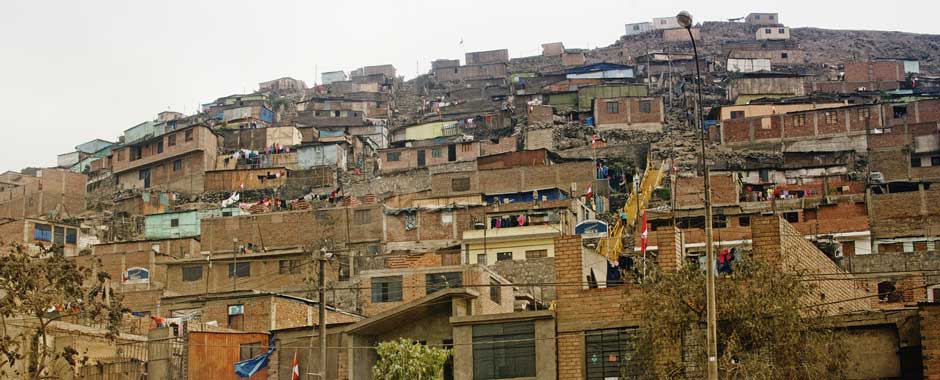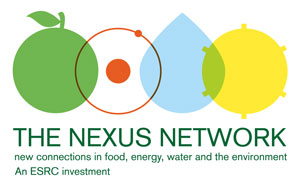 The STEPS Centre is a lead partner in The Nexus Network, an ESRC-funded initiative which brings together researchers, policy makers, business leaders and civil society to improve decision making on food, energy, water and the environment.
The STEPS Centre is a lead partner in The Nexus Network, an ESRC-funded initiative which brings together researchers, policy makers, business leaders and civil society to improve decision making on food, energy, water and the environment.
Follow the links below to jump directly to sections on this page:
Events
Sustainability in Turbulent Times, 16 March 2017
CUSP/Nexus Network/CECAN conference, central London
This conference addresses the challenges to sustainability and environmental policies presented by a British exit from the EU, a new US administration, and unpredictable waves of populism and authoritarianism.
Find out more about this event
Transforming Innovation: Addressing Nexus Challenges with Radical Change, 17 March 2017
An invite-only workshop in central London, convened by STEPS co-director Andy Stirling, to explore what forms of innovation are needed to address nexus challenges.
Nexuses of the urban, 12-13 May 2016
Interactions between water, energy and food provision for sustainable cities
Cities are dynamically connected with other urban and rural localities, both distant and proximate. Most critically perhaps, cities rely on an elsewhere to produce much of the food, water and energy they consume.
Blog: Making visible the hidden cogs of the urban nexus
Full details (Nexus Network website)
Resource politics, 29 February 2016
The Nexus, resource conflict and social justice
In recent years, the notion of the nexus has gained traction in the domain of natural resource governance. It has become the defining vocabulary to understand the inter-linkages between land, water, food and climate.
Blog: Nexus, resource conflict and social justice: are we speaking the same language? (STEPS blog)
Full event details and workshop report (Nexus Network website)
Nexus network conference: 19 November 2015
Conference: ‘Scales, levels and spaces of the Nexus’
Questions of scale are crucial in addressing the linked nexus challenges of food, energy, water and the environment. The nexus is often framed as a global security problem, but this can obscure alternative understandings of interactions and trade-offs at local, regional and national levels.
Full details (Nexus Network website)
Methods workshop, 29-30 June 2015
A Nexus Network workshop on Transdisciplinary Methods for Developing Nexus Capabilities at Sussex University was led by STEPS Co-director Andy Stirling. The workshop took a critical look the research challenge in addressing nexus issues, with interactions based on short panel interactions, with break-out groups and lots of room for discussion.
2014 Conference: What Works at the Nexus?
Nexus challenges and collaboration were discussed at at the recent What Works at the Nexus? conference. Speakers included Professor Ian Boyd, Chief Scientific Adviser at the Department for Food Environment and Rural Affairs and Professor Jacqueline McGlade, Chief Scientist, United Nations Environment Programme.
About the Nexus Network
In a world of increasing ecological and human insecurity and inequality, we all depend on the environment for food, energy and water. Only by addressing these inter-dependent issues together will solutions for a safe and just future be forged. But these interconnections also bring tradeoffs and tensions. Will the limits on water affect food supply? Will there be conflict over resources? How will jobs and the economy be affected? How can businesses and governments respond?
‘Nexus thinking’ aims to open people’s eyes to mutually beneficial responses to these challenges and the potential for collaboration. The Network aims to inject some ‘nexus thinking’ from social scientists in to the debates policy makers, businesses and NGOS are having about food-energy-water-environment linkages.
Joining the Network will give members the chance to connect with analysts and experts in seeking to understand the complexities of the nexus and introduce them into real world decisions. Grants will be available to stimulate new thinking, an exciting series of events will tackle subjects including urbanization, green technologies and resource conflict and placements in different sectors will be encouraged.
Led by STEPS Centre member Professor James Wilsdon, the Network is a three-year collaboration between the Science Policy Research Unit (SPRU) at the University of Sussex, the Centre for Social and Economic Research on the Global Environment (CSERGE) at the University of East Anglia and the Cambridge Institute for Sustainability Leadership. Three STEPS Centre members are Co-Investigators, Andy Stirling, Lyla Mehta and Fiona Marshall.
- Visit the Nexus Network website for details of how to join
- Follow the Nexus Network on Twitter @uk_nexus
Key STEPS Centre Nexus resources
The STEPS Centre has been working on globally interconnected food, energy, water and environment issues for many years. Our cutting-edge research and policy engagement activities have applied the Centre’s pathways approach – understanding interactions between social, technological and environmental dynamics in diverse local conditions – to nexus challenges. Here are some of our key resources in this area.
Project: Nexus governance in Southern Africa
In southern Africa, the intersection of land, water and environment is central to a range of challenges for policymakers, businesses and local people. This project studies the different ways in which the ‘nexus’ of land, water and environment are governed in the region. It investigates different governance styles (including technocratic, market-led, state-led and citizen-led approaches), and asks what difference they make to the mechanisms and actors that are involved.
Governing the Land-Water-Environment Nexus in Southern Africa
Project: Dams, risks and the nexus 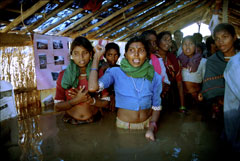
This project looks at how the agenda of the ‘Water-Energy-Food nexus’ has led to some forms of water storage being favoured over others – in particular, how large dams are chosen over other small and large-scale water storage solutions. The Water-Energy-Food (WEF) nexus is emerging globally as a research agenda and governance framework for understanding the relationship between water resources development and the energy and food sectors. This project researches case studies from Nepal-India and Thailand-Laos, countries that each share transboundary rivers (Mekong, Ganga) and that are increasingly tied together by jointly developed water resource development projects and cross-border power trade.
Dams: securitization, risks and the global water-energy-food nexus
Paper: Nexus Nirvana or Nexus Nullity?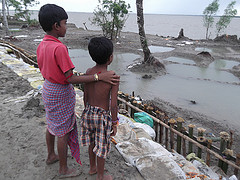
Water, energy, and food security are often framed to be within a contested trade-off relationship between actors, and this framing has been reinforced by a ‘scarcity crisis’ narrative put forward by a number of influential global policy actors promoting the WEF nexus. This working paper by Jeremy Allouche, Carl Middleton and Dipak Gyawali, argues the governance of water, energy and food security – historically concerned with safety and certainty from contingency – has privileged control-orientated solutions, in particular the construction of large dams for water storage, in the belief they are more secure and more sustainable. It critically explore the associated risks and uncertainties of this pathway, and highlight that WEF systems are by nature complex and dynamic.
Article: Green grabbing: a new appropriation of nature?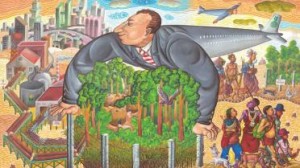
Across the world, ‘green grabbing’ – the appropriation of land and resources for environmental ends – is an emerging process of deep and growing significance. Green grabbing builds on well-known histories of colonial and neo-colonial resource alienation in the name of the environment – whether for parks, forest reserves or to halt assumed destructive local practices. Yet it involves novel forms of valuation, commodification and markets for pieces and aspects of nature, and an extraordinary new range of actors and alliances – as pension funds and venture capitalists, commodity traders and consultants, GIS service providers and business entrepreneurs, ecotourism companies and the military, green activists and anxious consumers among others find once-unlikely common interests. This article by James Fairhead, Melissa Leach and Ian Scoones is the opening article to a special issue of the Journal of Peasant Studies on green grabs.
Green grabbing: a new appropriation of nature?
A selection of our work on green-grabbing
Paper: Narratives of scarcity: understanding the ‘global resource grab’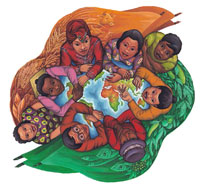
Global resource scarcity has become a central policy concern, with predictions of rising populations, natural resource depletion and hunger. Resulting narratives of scarcity drive behaviour and justify actions to harness resources considered ‘under-utilised’, leading to contestations over rights and entitlements and producing new scarcities. The authors of this paper, Ian Scoones, Rebecca Smalley, Ruth Hall and Dzodzi Tsikata, present an analysis of three framings – absolute scarcity, relative scarcity and political scarcity – associated with the intellectual traditions of Malthus, Ricardo and Marx, respectively. They argue current mainstream narratives emphasise absolute and relative scarcity, while ignoring political scarcity and suggest a more political framing of scarcity requires paying attention to how resources are distributed between different needs and uses, and so different people and social classes.
Narratives of scarcity: understanding the ‘global resources grab’
Not another nexus: Critical thinking on the ‘new security convergence’ in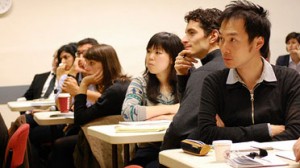
energy, food, climate and water (event and working paper)
The increasing references to a so-called water-energy-food ‘nexus’ reflects the understanding that vital resources are connected in fundamental ways. Although many academics and policy makers working on how humans interact with natural resources have long recognised these connections, this language is now being found in new and surprising places. This STEPS Centre and SOAS-organised event brought together researchers and practitioners in international development to explore the risks and consequences of these changes with resources including videos and a report.
Working paper: Not another Nexus? Critical Thinking on the New Security Convergence in Energy, Food, Climate and Water
STEPS Working Paper 75, November 2014
Special issue: Critical Thinking on the ‘New Security Convergence’ in Energy, Food, Climate and Water: Is the Nexus Secure … and for Whom?
Special issue of Water Alternatives, February 2015
Essential reading
- Paper: The cost of a knowledge silo: a systematic re-review of water, sanitation and hygiene interventions. Michael Loevinsohn, Lyla Mehta, Katie Cuming, Alan Nicol, Oliver Cumming and Jeroen H. J. Ensink. Health Policy and Planning, 29 May 2014.
- Blogpost: Nexus narratives – water politics in Asia by STEPS Director Ian Scoones
- Blogpost: Does the Nexus mask a bigger debate? Rethinking the Food-Energy-Water Nexus and a Low Water Economy by STEPS member Jeremy Allouche
- Blogpost: Food, energy and water: the politics of the nexus by STEPS member Jeremy Allouche for the Guardian Political Science blog Nexus series.
- Blogpost: Navigating the nexus of food, energy, water and the environment by STEPS members James Wilsdon and Rose Cairns for the Guardian Political Science blog Nexus series.
- Blogpost: Disciplinary dilemma: working across research silos is harder than it looks by STEPS Co-Director Andy Stirling for the Guardian Political Science blog Nexus series.
